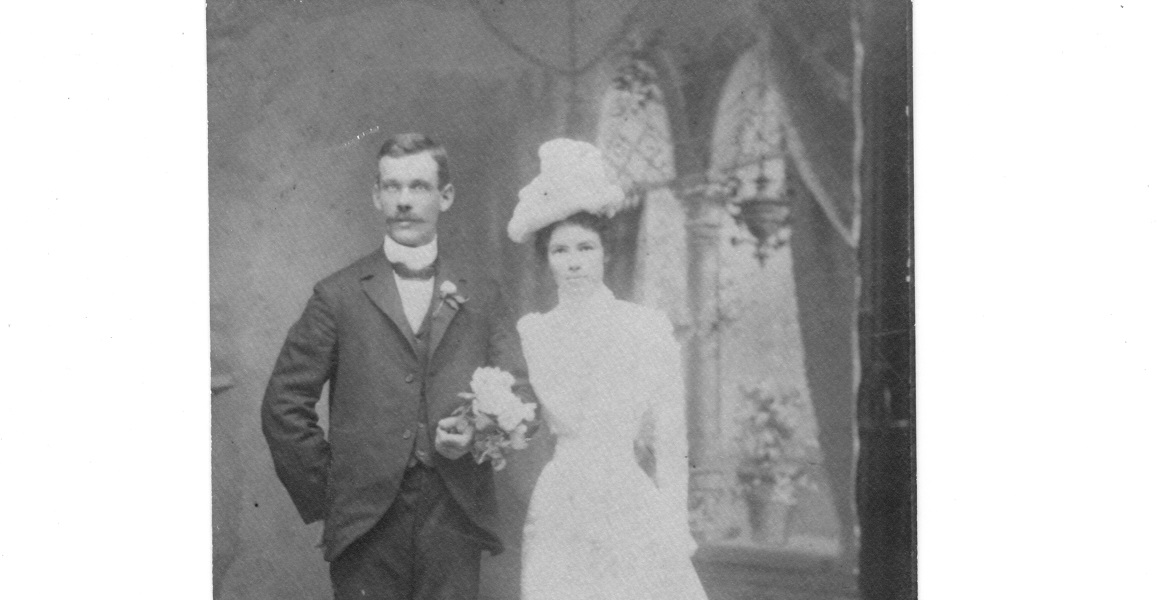Welcome to our Southern Originals Authors Series, Kim Onder. Katherine (“Kim”) Onder is a lifelong Virginia resident, originally from the Tidewater area. She is the chief storyteller and custodian of her family’s history. Kim is the married mother of an adult son and daughter and lives on a farm in the heart of Virginia She is a graduate of The University of Richmond and a retired real estate paralegal.
The following is a story of her family in Virginia.
INA OF LANDON HALL
The narrow, unmarked macadam roads there now have street names. Good Luck Road, Shiloh School Road, Devils Bottom Road. The sight of these proper street signs startles, then amuses me. The signs were added to help 911 dispatchers, but it still seems unnecessary; they’ll be able to find you because everyone knows you there. Heavy green vines twist idly around old telephone poles. The breeze zig zags through cornfields and soybean fields. You’re never far away from the water there, whether it’s the Rappahannock River or the Chesapeake Bay. Sometimes you’ll get caught behind a tractor on the single-lane roads, but its driver will wave you on if it’s safe up ahead. You’re not in a hurry anyhow.
I couldn’t wait to get away, forever. Now I go back as often as possible.
My change of heart started in earnest when I learned that my great-grandmother’s ancestral home, Landon Hall, was for sale. Although it was run down and had not been owned by my family in 100 years, I had long-time ties to the family that was preparing it for sale, and I rushed down there to wander through it one last time. The homesite — featuring nearly four acres of breathtaking waterfront property — was very desirable. Never mind that the house, an old hunting lodge constructed in the 1850s and modified through the years for a family’s use, was in serious need of repair. This is where my great-grandmother Ina came to live in 1885 at the age of seven, after her mother left her husband, something nearly unheard of then.
Millicent Hall Conway never divorced her husband because that would blanket the family in scandal. Her brother, Uncle Goldsborough Hall, took her and her children in to live with him. Ina loved him for that and named her son, Edward Goldsborough Coles, after her uncle.
When I learned that the house was for sale, I wished I had the means to buy it back and restore it to its condition during Ina’s era. This was not a grand house in any sense, but I felt a powerful connection to it because I had visited it several times in the 1960s as a little girl. The house had not been continuously lived in since that time.
When I walked through Landon Hall a final time on that hazy, humid day, I paused to look out of the wavy glass windows that she must have looked through thousands of times as a child. I saw a stack of musty old books on a table and fumbled through them quickly, hoping to find one with her name in it, but I did not. The ancient piano that I remembered from my childhood was still there; an old upright whose keys used to stick when I tried playing it. I asked my grandmother why that happened, and she explained that the ever-present humidity from the Bay’s saltwater would cause the keys to get hung up.
When growing up, I heard stories of Ina’s quick temper, yet I thought my grandmother was exaggerating her mother’s demeanor. How could that petite, frail woman with the twist of white hair — whose hands were folded demurely in her lap — be the firebrand who, upon hearing in the night the sound of an unexpected vehicle coming down the long dirt and crushed oyster shell driveway, raise the window and nonchalantly fire a shotgun blast out of it?
Similar to many young people of her day, Ina left her home in the isolated Northern Neck of Virginia in the late 1800s to find work in “Baltimore City”. Bridges out of the narrow peninsula were decades away, so she boarded a steamboat to head north to her future. Ina told my grandmother that the owner of the Baltimore clothing business (where she worked as a seamstress) and his son both fell in love with her and began feuding for her affections. It upset her so that she promptly came back home and married my great-grandfather, Lucius Harding Coles of nearby Cloverdale. He was twelve years her senior. The following year, a son arrived, stillborn; the year after that, a daughter, Dorothy Louise and then another daughter, Constance Conway Coles. Connie, a legendary beauty, left home as a young woman, never to return. My grandmother said her looks were so arresting that people stopped in the streets to stare after her. Several years later, Uncle “Goldie” arrived and finally, at the age of 41, she gave birth to my grandmother, Edna Lemoine Coles. She said that shortly after her birth, her mother went to her father and said, “Mr. Coles, you must sleep in another bedroom from now on.” When I heard that, I was fascinated at how politely she had addressed her husband, unaware that this was customary at the time. Aunt Dorothy chortled as she recounted overhearing her father’s protestations, but he finally relented. Ina felt that they were “simply too old to have any more babies.”
“Mr. Coles” — a tall, striking man talented at playing the fiddle — died in 1943. Many years later, some well-intentioned relative asked Ina if she wanted to relocate his grave nearer to those of other long-deceased relatives and she replied, “No. Leave him right where he is.” This understated decisiveness was one of the qualities I most admired in her. That and her utter lack of envy of her older sister, Genevieve, who once pointed out to Ina that she still did not have electricity, whereupon she replied that she got along just fine without “modern conveniences.”
I was fifteen when Ina died. The first thing I remember my mother and grandmother discussing with each other was that she’d had a “sad life.” I didn’t know what they meant and wouldn’t until I became a grown woman. Looking back at her life, it had been tinged with tragedy. Her parents separated when she was very young, she lost a child in her first year of marriage, her only surviving son had lifelong health problems. And there was more misery to follow: in later years, her daughter, Connie, became an alcoholic and was forever estranged from the family. In 1927, the family’s home burned to the ground. My grandmother recounted the horrifying minutes during which they attempted to retrieve belongings from the burning house. When they were able to salvage items from the charred remains, little was left, though miraculously, Ina’s plain gold wedding band was found, misshapen but otherwise wearable, just as she’d left it in a tin of flour.
Their neighbors, the Ball family, opened the nearby “Ditchley” mansion to Ina and her family to live in for a year while their home was being rebuilt. Though she had once had briefly been a fashion model and had admired the fashionable Duchess of Windsor, Wallis Warfield Simpson, my great-grandmother regularly swung herself up onto ladders and hammered the lumber into place on the frame of her new home. She was unafraid of and undeterred by hardship; nobody ever heard her complain.
Upon returning to Landon Hall, I shut my eyes and took a deep breath. I recalled the creak and the whack of a screen door as it swung shut and I sniffed the air for the scents that make me homesick: saltwater and creosote from pilings of the docks.
My maternal great-grandmother, Ina Ringwood Miller Conway Coles, died on an icy day in December 1973. It has been several years since her youngest daughter, my grandmother Edna, passed away. If I could have back just one day with her, I’d ask her to tell me all the “stories of old” again so that I could record them all this time, leaving not a single memory to chance.





